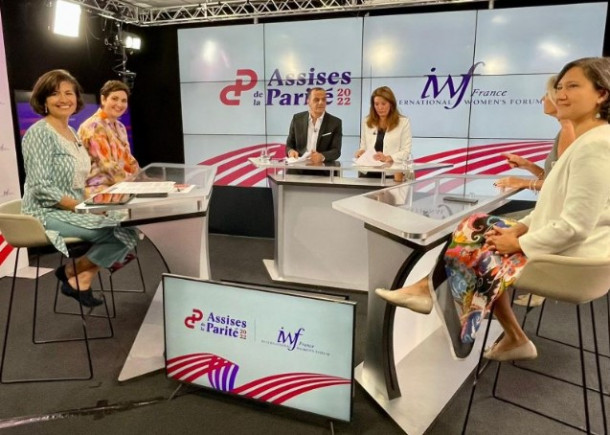Article
UNESCO advocates for advancement of gender equality at the “Assises de la Parité” in France

UNESCO was at the opening of the event alongside other renowned female leaders: Lucille Desjonqueres, President of IWF France; Delphine O, Secretary-General of the UN Generation Equality Forum; Catherine Ladousse, Co-president of the French Parity Commission and High Council for Equality between Women and Men; and Elisabeth Moreno, former French Minister Delegate for Gender Equality, Diversity and Equal Opportunities.
The 2022 edition took place in the context of a complex environment where women's rights, security and wellbeing are being jeopardised. In addition to threats of violence and loss of bodily autonomy, homes, jobs and livelihoods, women remain particularly vulnerable to the continued disastrous impact of the COVID-19 pandemic. Women are still dramatically underrepresented in lucrative and innovative fields, such as science, technology, engineering and mathematics (STEM), and overrepresented in generally low-income, informal or precarious employment, including the care economy; much remains to be done.
Steering the discussion towards solutions, ADG/SHS Ramos highlighted important promising practices, such as: France’s Rixain Law, guaranteeing transparency and gender diversity in business leadership; the Republic of Korea’s extended paternity leave of 100 days; and Mexico’s progressive quota laws which have led to gender parity in the Congress – all examples of positive change. Nevertheless, she underscored the slow progress of gender equality.
UNESCO’s work focuses on rooting out stereotypes and gender imbalances in domains such as culture, science, education, sport, technology and AI.
For example, the Transforming MEN’talities initiative emphasizes the important role that men and boys play as accountable allies for gender equality. UNESCO’s Recommendation on the Ethics of Artificial Intelligence, governs the ethical production and use of AI, and tackles discrimination and bias embedded in the very fabric of the technology. In this context, one of its main goals is to counteract the reproduction and perpetuation of harmful gender biases in algorithms and software development.
This high-level event was an opportunity for UNESCO to reiterate its commitment to accelerating gender equality across its entire mandate, including by promoting affirmative action and quotas, by reaffirming the advantage of gender diversity to boost performance, and by advocating for accountability and new workspace codes.
It will soon be followed by the second edition of the annual UNESCO Global Forum against Racism and Discrimination on 28-29 November 2022 in Mexico that will gather high-level leaders, policymakers, practitioners, experts, activists, and artists from all over the world to strengthen and give a new momentum to global collaboration against all forms of discrimination.


